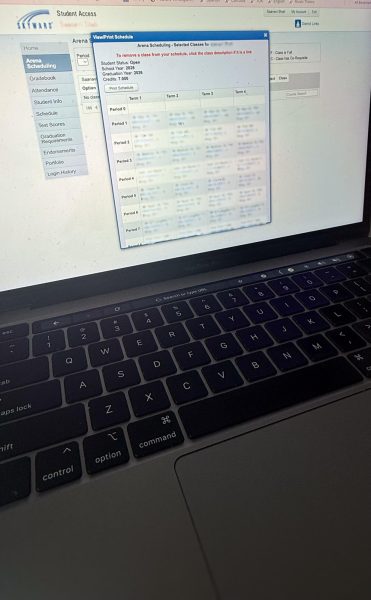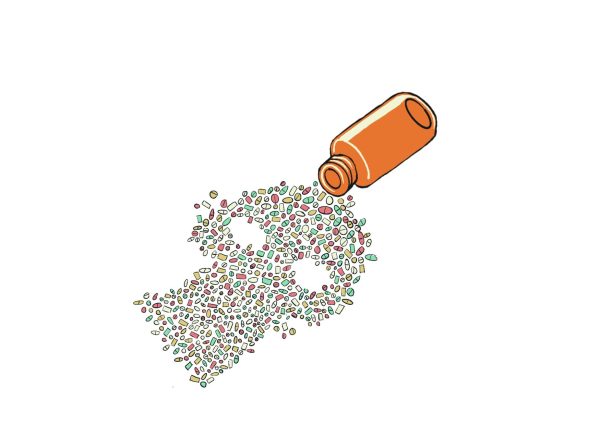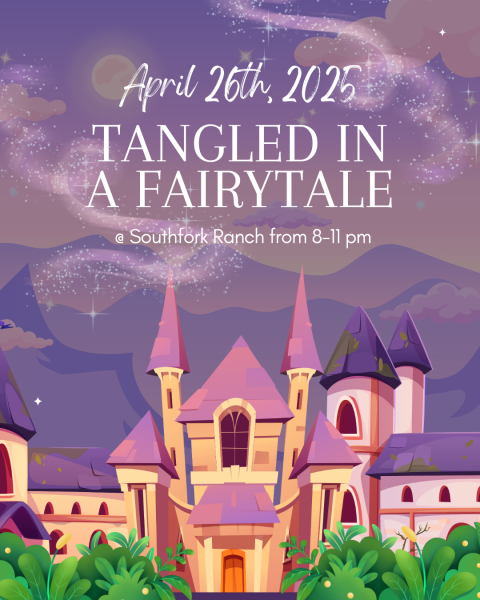Tapped out
California places obligatory drought restrictions
California announced its first ever mandatory water restrictions April 1 in response to severe droughts. They will be enforced starting sometime between mid-May and June 1.
This is the fourth and worst year of drought for California, and Gov. Jerry Brown is requiring that urban water use decrease by 25 percent.
Specifically, California’s conservation regulations include monthly reports on water use from water supply companies, and a rule stating customers of new restaurants and hotels must ask for water and fresh linens daily. The use of clean drinking water for cleaning driveways and sidewalks is prohibited, as well as irrigation runoff with potable water.
Junior Heather Lo lived in California until she was five and spends summer and winter breaks visiting family in Irvine and Yorba Linda. Lo said she has noticed a change due to lack of water.
“The grass used to be green when I visited 2 years ago, but now during the summer it was all desert,” Lo said.
According to Allen water conservation manager Gail Donaldson, the challenge for California will not be getting rainfall, but the right kind. In order to recharge groundwater, precipitation must be steady to avoid mudslides and runoff into the ocean.
California’s primary water source comes from rainfall and snowpack from the Cascades and Sierra Nevada mountain ranges. Snowpack levels have been below normal for four years, and businesses and agriculture have resorted to groundwater to meet their needs, and as a nonrenewable resource, it is depleting faster than it can be replaced.
Another challenge is enforcing restrictions and getting the message out to citizens, Donaldson said, but Gov. Brown announcing restrictions on national news has “[made] the message pretty clear.”
Texas continues conservation
Allen switches from a stage three water restriction plan to a new conservation plan May 1.
Allen’s stage three restriction plan has been in effect since 2008. It states that residents can water their lawns once every two weeks. The new plan, which was drafted last year, allows more water usage, including the use of sprinklers up to twice a week.
“When we’re under stage three, there are usually more restrictions to reduce the water use,” Donaldson said.
Previously Allen has been under the Water Conservation and Drought Contingency and Water Emergency plan, which had four stages. The new Water Conservation and Water Resource Management Plan has three stages. The new plan eliminated stage one, which allowed for voluntary water conservation, so that now all stages require some sort of mandatory water restrictions.
While this is California’s first time requiring water restrictions, Allen enacted mandatory restrictions when lake and reservoir levels first started to lower. Allen has been in drought conditions since 2005.
North Texas primarily depends on reservoirs and nearby lakes for water, whereas California uses surface water and groundwater. Allen uses no groundwater.
Greenhouse gas emissions have attributed to the dry weather in both California and Texas. The excess of gas trapped in the atmosphere means less precipitation and more evaporation.
Weather patterns affecting Texas and California are the same, but there are differences in the way each state has used water in the past how they have conserved. According to Lo, there are a lot of ways to save water considering the continually decreasing amount of fresh water left.
“I think [conservation] is important because we do so much everyday,” Lo said. “With 30 minute showers and watering grass, we use a lot of water.”
Despite past differences between Texas and California conservation, Donaldson knows the importance of spreading the word from her experience doing so in Allen, and she said she is grateful for how residents handled the regulations.
“Once we got the message out, the citizens of Allen were very responsive,” Donaldson said.

Sara Schleede is a senior who enjoys podcasts, sweater tights and visiting museums. She plans to study print and digital journalism in college and then...





